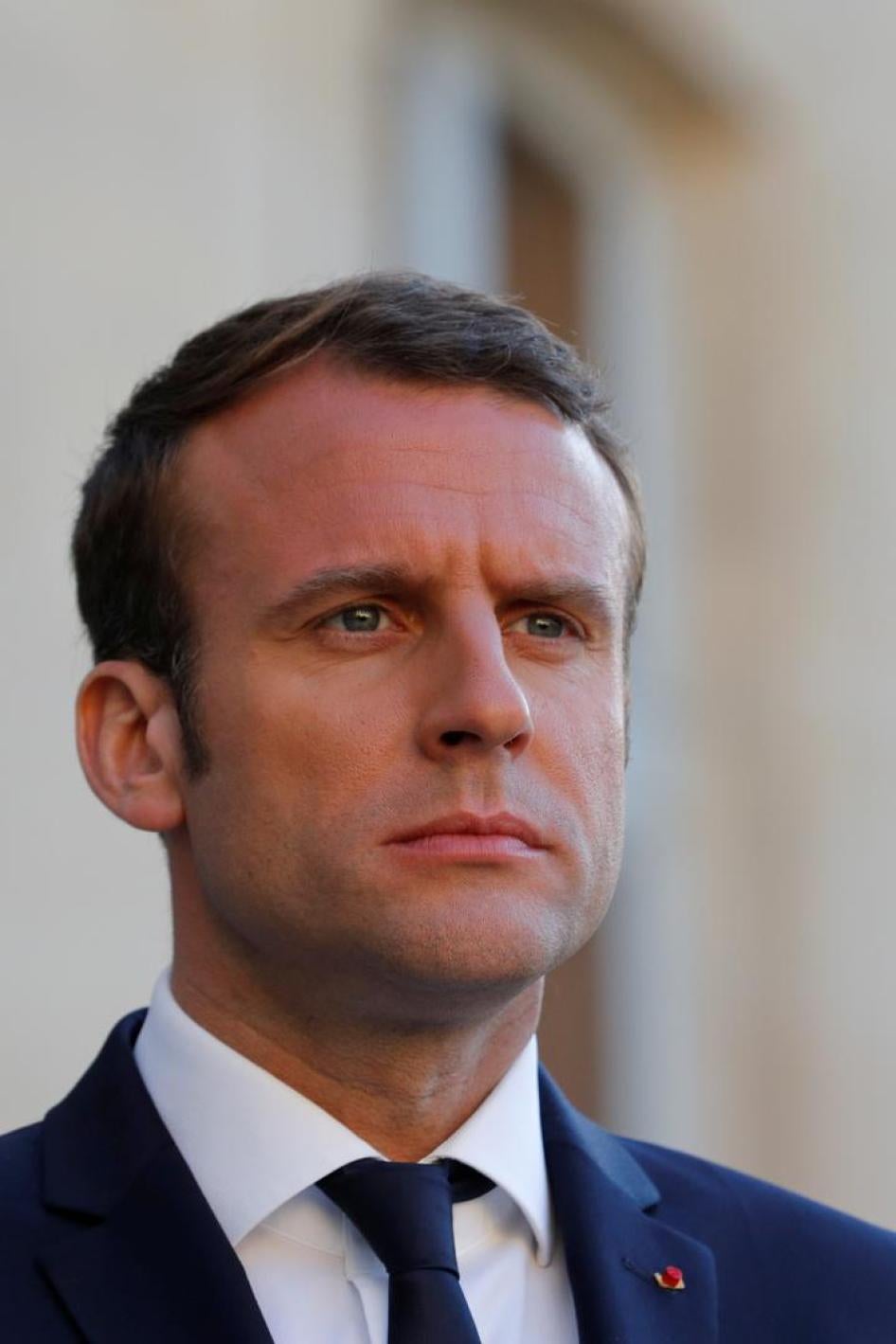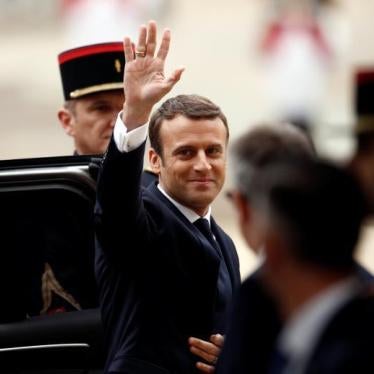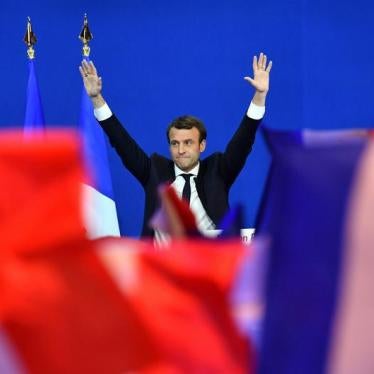(Paris) – President Emmanuel Macron’s meeting with President Vladimir Putin of Russia on May 29, 2017, will be an important first test of the French president’s commitment to reflecting human rights in France’s foreign policy, Human Rights Watch said today.
Putin is in Paris for the gala opening of a commemorative exhibit of Russian Tsar Peter the Great’s first visit to France in 1717, marking 300 years of Franco-Russian diplomatic relations. Putin is the first head of state to visit France since the May 7 presidential vote, and the two heads of state will hold political talks on the sidelines of the exhibit.
“There could not be a more important time for France’s leader to speak out strongly about the need for its Russian partner to recommit to liberty and human rights,” said Bénédicte Jeannerod, France director at Human Rights Watch. “President Macron’s meeting with President Putin will help give direction to the agenda for Franco-Russian relations for years to come, but the question is how firmly rights will be embedded in it.”
During his campaign and since the election, Macron repeatedly promised that the values of liberty, democracy, and equality would be at the forefront of his policies. In his inaugural speech, he said that France “will always make sure to be on the side of liberty and human rights.”
The Kremlin is in the midst of an authoritarian backlash against human rights that started when Putin returned to the presidency in 2012. The government has tightened control over free expression, assembly, and speech, aiming to marginalize and intimidate independent critics, especially online. A battery of new laws enable authorities to restrict access to information, carry out unchecked surveillance, and censor information that the government deems “extremist,” “separatist,” or otherwise illegal and harmful to the public.
Media outlets owned by or loyal to the Kremlin often portray Western democracies as working to destabilize Russia and the world, and brand dissenters as paid agents of the West working against Russia. The authorities have used a 2012 law to demonize leading independent groups as “foreign agents.” A 2015 law on “undesirable organizations” bans major foreign donors from working in Russia and with Russian activists. A 2013 law bans distributing among children “propaganda” that portrays same-sex relationships as normal or acceptable and of equal value to heterosexual relationships.
In the wake of peaceful nationwide anticorruption protests on March 26, most of which were unauthorized, authorities in Russia detained more than 1,000 people in Moscow alone, holding more than 60 for up to 25 days, and fining many others.
Russian authorities have opened an investigation into the recent anti-gay purge in Chechnya, in which local authorities rounded up, tortured, and held in secret detention dozens of men believed to be gay or bisexual. Most have been released, but while they remain in Russia they face the double risk of being hunted down and harmed by Chechen security forces, and by their own relatives since Chechen authorities indirectly encouraged families to commit “honor killings” against the men. Yet Russian federal officials have repeatedly pointed to the lack of victim complaints to suggest the allegations are merely rumors.
Macron should urge Putin to ensure that the investigation is thorough, and acknowledges and takes full account of victims’ well-founded fear of stepping forward rather than dismissing it as evidence of fabrication, Human Rights Watch said.
Macron and Putin are slated to discuss the war in Syria, in which Russia finances and delivers weapons to the Syrian government, despite its record of abuse. Russia has also stonewalled most initiatives at the UN to improve protection of civilians in Syria, even relating to chemical weapons. Since Russia joined the conflict in 2015, there has been a spike in the use of cluster munitions, launched either by Syrian or Russian forces, and Russia has used incendiary weapons in the conflict. Russia has also failed to investigate or to be transparent on investigations of its own strikes that may have resulted in civilian casualties.
As a candidate, Macron flagged serious concerns about Russia’s disregard for human rights in domestic and foreign policy, and said that France should be demanding and rigorous in its approach to relations with Russia.
“The Kremlin has been heaping scorn on human rights values, claiming they’re emblematic of a declining Europe,” Jeannerod said. “A healthy dose of rigor that Macron has promised is exactly what is needed to counter this claim, and we look forward to him doing just that today.









